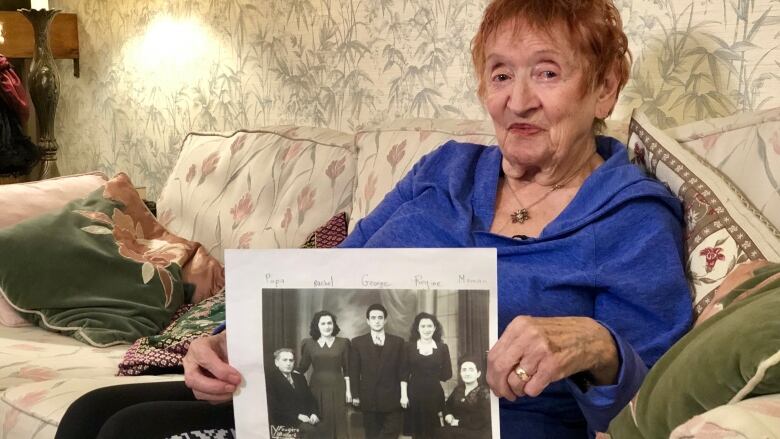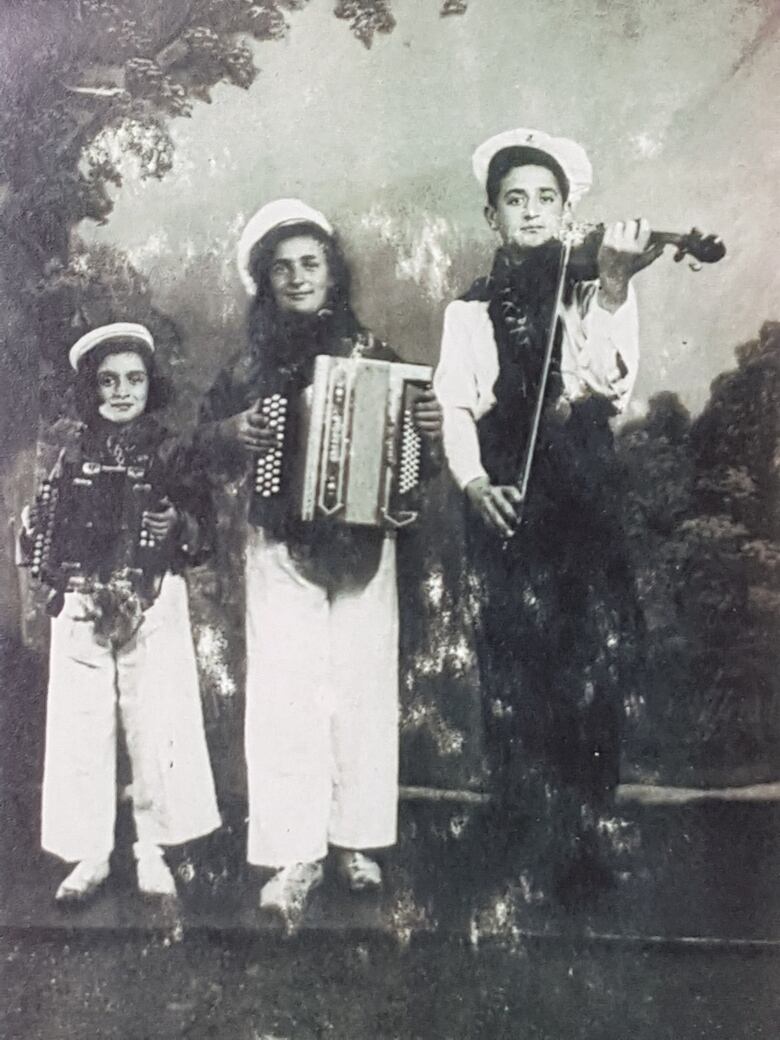75 years after largest Nazi death camp liberated, stories live on through music
International Holocaust Remembrance Day commemorates liberation of Auschwitz concentration camp on Jan. 27

For Regine Frankel, music is a reminder of the years her family spent hiding from Nazi soldiers during the Second World War. It's also what she said saved their lives.
Frankel, whose family is Jewish, was 11 years old when her family was forced to flee their home in France and live on the run from Nazis. Even in a new place, she said, her parents wanted to make sure they kept going to school and kept practicing their instruments.
"They wanted us to have a normal life still," Frankel told CBC Weekend Morning Show host Nadia Kidwai on Sunday.
"I remember that when we practiced music before the war and, you know, kids don't want to practice. But my father was saying always [saying], 'Just know you'll love it later on.'"
Frankel said after the war broke out and Nazis began invading parts of Europe, hers and other Jewish families were rounded up and forced to move into an isolated part of the French town of Tulle. Their new home had no electricity or running water but she said the living conditions weren't even the worst part.
"The scariest thing was that we were trapped there," she said. "Because we knew that the Nazis would come at one point, but we never knew when."
Frankel said her family tried to stay out of the house whenever they could so the Nazis wouldn't be able to find them when they came looking. The only time they were in the house was to sleep and Frankel's parents would take turns staying awake so they would hear if soldiers came in the night.

Frankel said while her family was in hiding, a nearby village was organizing a concert to raise money to send care packages to French soldiers.
Frankel said her parents heard about it and went to see the village's mayor to offer to have her and her siblings all talented musicians, who often played for audiences before the war perform at the event.
A few weeks after that, Frankel said, they had an unexpected visitor.
"We were in front of our house and we saw a car racing up," she said. "A man came out running, [and] told my parents, 'you better leave immediately. The Nazis are ready to come and pick you up.'"
It was the mayor of the village where they had performed, who had overheard Nazi soldiers mention the family by name.
They made it out just in time, she said.
Frankel said she will never forget what her family went through. And, decades later, she wants to make sure others don't, either.
"By talking about the Holocaust, it helps people understand the roots of prejudice, racism and stereotypes," she said. "[We] always have to be reminded about what can happen."
Learning through music
It's a message that hasn't been lost on Winnipeg composer Zane Zalis.
In 2009, Zalis premiered "I Believe," an orchestral composition he created about the power of faith during the Holocaust.
He said he spent hours interviewing Holocaust survivors about their experiences as he was creating the composition.
"It sticks with me," Zalis told Kidwai Sunday morning. "It laid bare to me what it meant to live through this."
Zalis said he was stunned by the support he received from the Jewish community during the process.
"The whole idea is an empathetic response, that this is your life and I'm trying to get as close as I can to your life and say it in such a way that it means something for you," he said.
On Sunday afternoon, the Winnipeg Youth Chorus performed parts of "I Believe" at the Canadian Museum for Human Rights as part of the museum's programs ahead of International Holocaust Remembrance Day on Monday.
Watch Winnipeg Youth Chorus performing "I Believe":
Zalis said it was affirming for him to see the choir would be performing his oratorio and he hopes teaching people about the Holocaust through music will help achieve what survivors like Frankel are looking for.
"To witness their tears, even if they don't understand the full scope of it, it's the human suffering that they understand, that they're getting through, which leads to another discussion and further exploration," he said.
"When children get their hands on those words and notes and rehearsals, my heart goes, 'Yes, this is a good thing.'"













_(720p).jpg)


 OFFICIAL HD MUSIC VIDEO.jpg)
.jpg)



























































































